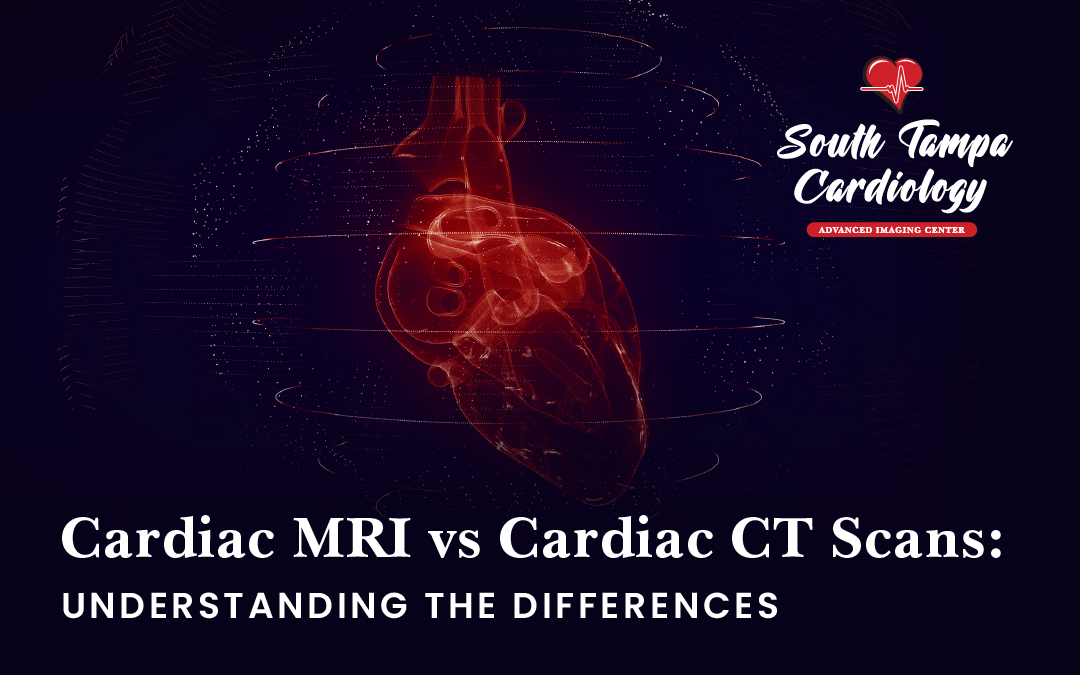Cardiac MRI and cardiac CT scans are common imaging tests that are used to examine the heart. The results of each diagnostic test can help doctors detect and diagnose a range of heart conditions and defects. Although each test produces detailed pictures of the heart, they vary as to their use and purpose. Each test works in a different way and each is better suited for certain situations.
This article discusses how each diagnostic imaging test works and what they are both used for. Knowing the difference between cardiac MRIs and CT scans can help patients make informed decisions and determine which test is most suitable for their unique needs.
Cardiac MRI
MRI stands for magnetic resonance imaging. It uses a combination of magnetic fields and radio waves to produce a detailed image. Unlike X-rays and CT scans, MRIs don’t use radiation. This can make it a preferable diagnostic tool for people who need to avoid radiation exposure, such as pregnant women and radiation therapy patients.
While MRI procedures are non-invasive and generally safe, the magnetic fields can cause problems for people who have pacemakers, stents, artificial heart valves and metal implants, such as screws, pins and plates. Such individuals may be better candidates for a CT scan.
Images produced by a cardiac MRI scan in Tampa can give your doctor an overview of your heart health and function. Images show how big each heart chamber is and how thick the walls are. They are essential for evaluating the effectiveness of heart surgery and monitoring a range of heart conditions. They are also commonly used to assess and diagnose conditions such as:
- Heart failure
- Heart damage
- Myocarditis
- Myocardial diseases
- Congenital heart disease
- Pericardial diseases
- Abnormal growths and masses
Cardiac MRIs can also show issues with major arteries and veins as well as within the lungs, chest cavity and esophagus.
MRI procedures typically take around 90 minutes. The process is non-invasive and painless, although it may be noisy and uncomfortable.
Cardiac CT Scan
CT stands for computerized tomography. Cardiac CT scans produce detailed 3D images of the heart and cardiac system. As it uses low-level radiation, it usually isn’t suitable for pregnant women, people with a heightened risk of cancer or individuals who are undergoing radiation therapy. Such patients are often better candidates for MRIs.
Often, people need to have a contrast tracer injected before their CT scan to make images clearer. Although usually safe, this can cause a reaction for some people. Additionally, some people may need beta blockers to slow the heart down before imaging.
CT scans can be used to diagnose issues such as:
- Artery blockages
- Problems with veins and arteries
- Issues involving the pericardium, heart muscles or heart valves
- Problems with the lungs, esophagus or mediastinum
CT scans typically take around 15 minutes, although your total appointment time may be around an hour because of preparation. Procedures are non-invasive and painless, although the dtracer may cause discomfort.
Cardiac Care in Tampa
South Tampa Cardiology is an advanced cardiac imaging center in Tampa. Established by Dr. Alberto Morales, MD, one of the area’s leading doctors, the center uses state-of-the-art equipment to diagnose heart conditions at the earliest possible opportunity. This enables swift treatment and effective monitoring. Modern technology enables the detection of conditions that may go undetected at routine health checks and screenings. Contact the clinic at (813) 870-1747 or via the online form to make an appointment today.

